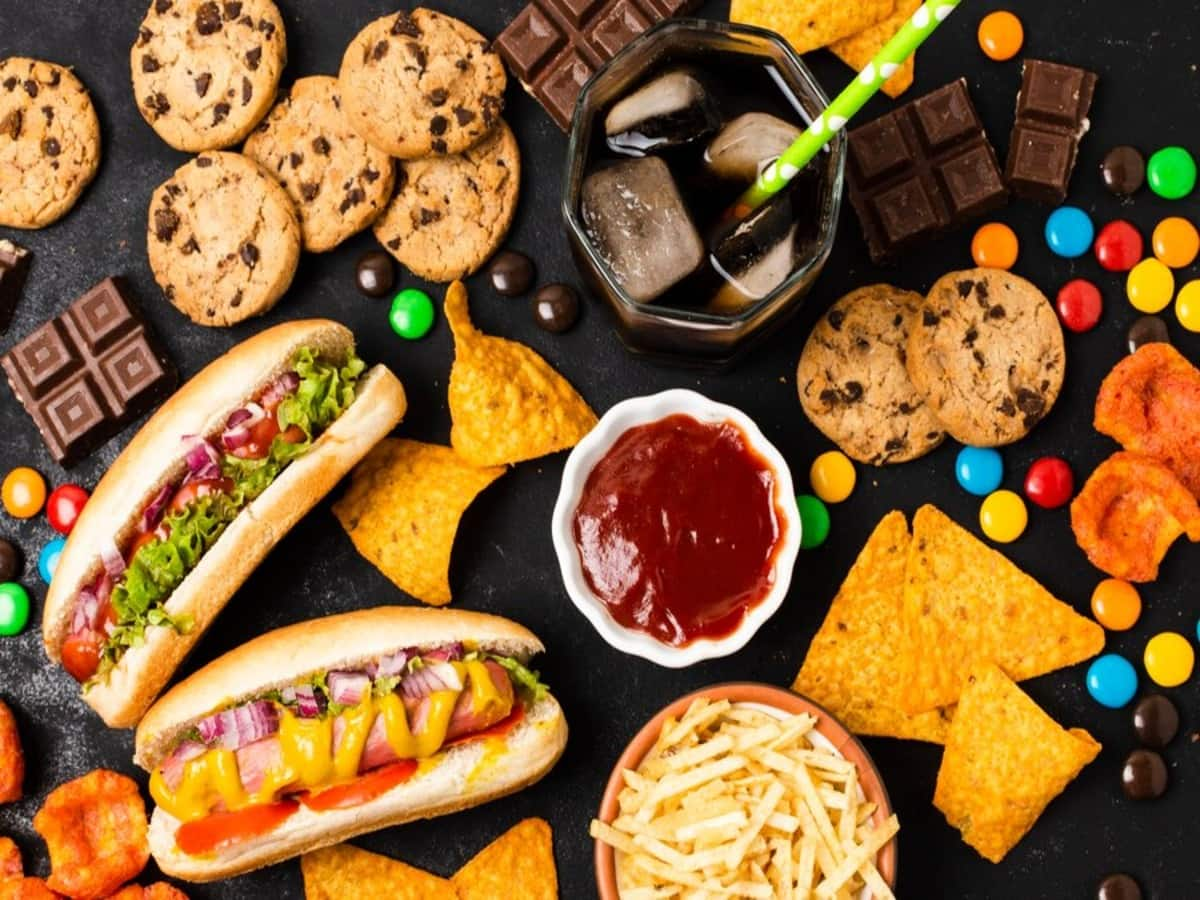Share this @internewscast.com
Ultra-processed foods have many added ingredients like sugar, salt, fat, and artificial colours or preservatives. They are made from substances extracted from foods: fats, starches, added sugars and hydrogenated fats.
Putting a burger in your mouth is a temporarily-gratifying experience that makes your taste buds supremely happy. But, in the long run, it can cause a great deal of irreversible harm to the body. That processed foods are damaging for health is a known fact. New research has found that eating ultra-processed foods can cut-short a person’s life and predispose them to an early death. A CNN report states that according to a review of 45 meta-analyses on almost 10 million people, consumption of ultra-processed foods ‘raises the risk of developing or dying from dozens of adverse health conditions’. Senior author Wolfgang Marx, a senior research fellow at the Food & Mood Centre at Deakin University in Geelong, Australia, was quoted as telling the outlet: “We found consistent evidence linking higher intakes of ultra-processed foods with over 70 per cent of the 45 different health outcomes we assessed.”
What Are Ultra-Processed Foods?
- Harvard Medical School’s Harvard Health Publishing mentions that unprocessed or minimally processed foods are whole foods in which the vitamins and nutrients are still intact. The food is in its natural or nearly-natural state.
- Processed foods are essentially made by adding salt, oil, sugar, or other substances. Most processed foods have two or three ingredients.
- Then, there are some foods that are highly processed or ultra-processed. They have many added ingredients like sugar, salt, fat, and artificial colours or preservatives. They are made from substances extracted from foods — fats, starches, added sugars and hydrogenated fats. Examples of these foods are frozen meals, soft drinks, hot dogs and cold cuts, fast food, packaged cookies, cakes, and salty snacks.
In fact, according to a study published in the BMJ journal, ultra-processed foods are the main source of calories eaten in the US, and contribute almost 90 per cent of the energy people get from added sugars.
Heinz Freisling, a scientist in the nutrition and metabolism branch of the World Health Organization (WHO)’s International Agency for Research on Cancer — who was not involved in the study — told CNN that a ‘higher intake’ was considered about one serving or about 10 per cent more ultra-processed foods per day.

Risk Of Cardiovascular Disease-Related Death, Mental Disorders
The study’s lead author Dr Melissa Lane, a postdoctoral research fellow at Deakin, was quoted as saying, “Strong evidence shows that a higher intake of ultra-processed foods was associated with approximately 50 per cent higher risk of cardiovascular disease-related death and common mental disorders.”
According to the study published Wednesday in the journal The BMJ, there is ‘convincing evidence’ that a high-versus-low intake of ultra-processed foods could increase the risk of anxiety by up to 53 per cent, and the risk of an early death from any cause by 20 per cent.
Ultra-Processed Foods And Obesity, Cholesterol
Researchers found ‘highly suggestive evidence’ that eating more ultra-processed foods raises the risk of obesity by 55 per cent, sleep disorders by 41 per cent, development of type 2 diabetes by 40 per cent and the risk of depression by 20 per cent. Evidence, however, was limited for the link between ultra-processed food and asthma, gastrointestinal health and cardiometabolic risk factors like high blood fats and low levels of ‘good’ high-density lipoprotein, or HDL, cholesterol.
Identify Processed Foods
One must always try to avoid or limit their intake of ultra-processed foods. For instance, corn is a minimally-processed food. When it becomes canned corn, it falls under the processed food category. Upon becoming corn chips, it becomes an ultra-processed food. Ditto for potato, whose transition takes place from simple potato to baked potato and finally French fries (ultra-processed). Wheat becomes flour (processed), before turning into cookies (ultra-processed).










